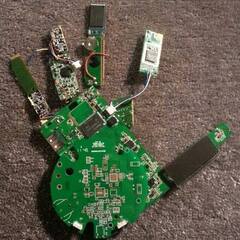Seagate Exos X16 [ST14000NM001G] vs Seagate Exos 7E10 [ST4000NM000B]
Go to solution
Solved by YoungBlade,
What exactly are you looking for? These drives are completely different in terms of capacity.
The 7E10 is a newer version of their Exos series and the model you give in the title is a 4TB drive. The X16 is a slightly older version and the model you give is a 14TB drive. They are very similar in terms of performance, but the X16 has more capacity because it's a 14TB model instead of a 4TB one.


.png.255947720031a641abdac78e663b681c.png)
.thumb.jpeg.9babd505c85c11addf31a285a02547cc.jpeg)













Create an account or sign in to comment
You need to be a member in order to leave a comment
Create an account
Sign up for a new account in our community. It's easy!
Register a new accountSign in
Already have an account? Sign in here.
Sign In Now